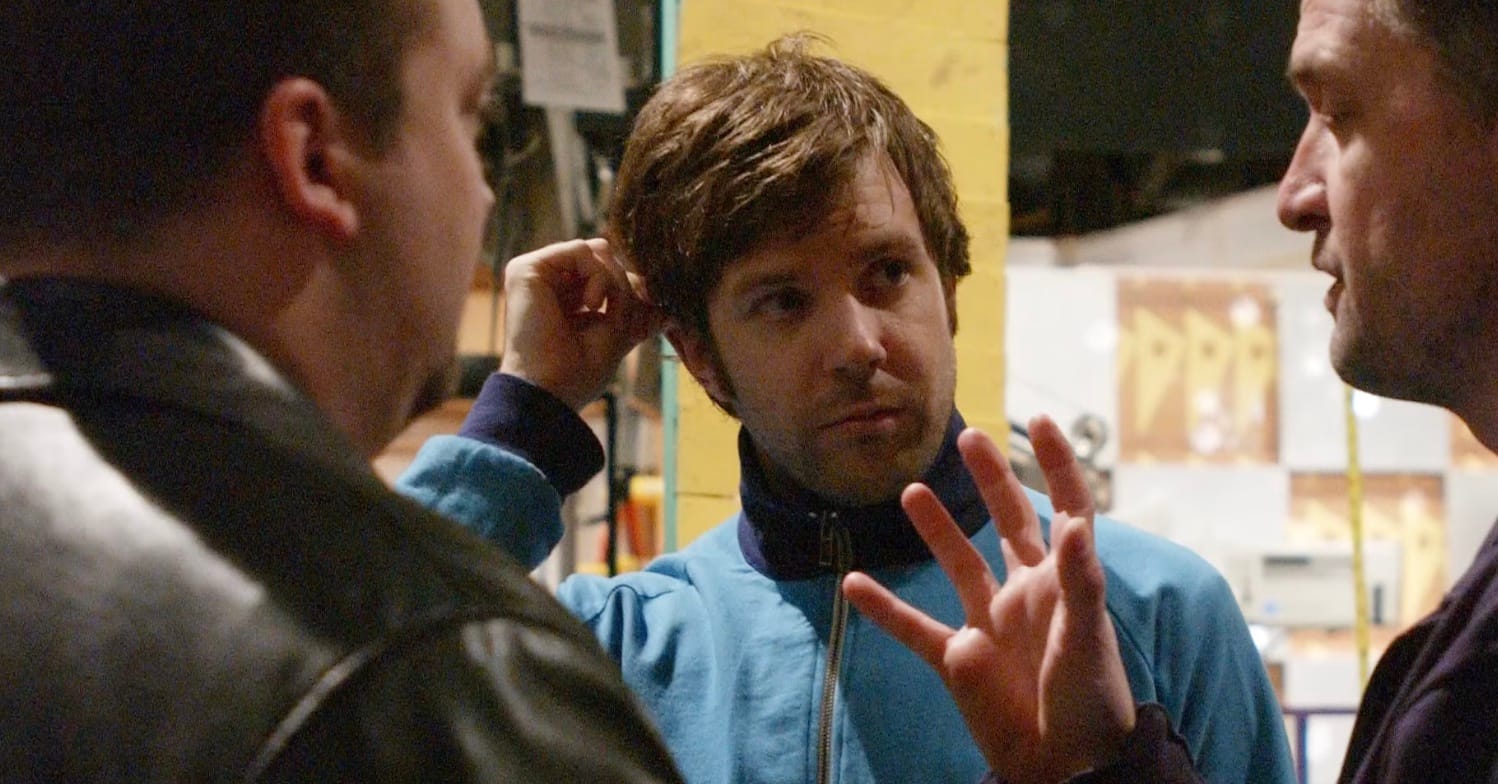You belong here
"To believe in yourself, to believe in one another, that's fundamental to being alive."
Ted Lasso
You've just landed a dream job. The kind that could change everything. But instead of celebrating, you're anticipating the worst, living like you're about to get evicted.
That was Jason Sudeikis in 2003, fresh off the plane to New York (long before his Ted Lasso days), and beginning a new comedy writing gig at Saturday Night Live. The show had helped shape his creative spark and sense of humour since childhood. The holy grail of comedy.
He was stunned to find himself there in the writer’s room. But he was also wracked with doubt and insecurity. Surely he’d been hired by mistake? He was so convinced he’d be found out that he didn’t even unpack his things. His tiny apartment was made up of one used futon and a pile of unopened boxes.
"I didn’t think I was going to last very long. I was ready to hop on a plane the second they were like 'uh, you messed up,” he remembers. "I thought they were gonna sniff me out immediately."
Sound familiar?

Here's the thing about imposter syndrome - it's sneaky. It convinces us we're frauds before we've even had a chance to have a go.
Jason's inner critic was working overtime at SNL, chiming in with all the classics: You’re not good enough to be a part of this team. Some of your biggest heroes didn’t make it, what makes you think you’ll be different? You should’ve stayed in Vegas, stuck to what you know.
He even remembers calling his manager repeatedly at this time: “I don’t think I’m doing this right?”
The stakes were high. He'd spent years developing his own comedic voice, and now that he was just starting to hit his stride, he was being thrown back in the deep end… Writing sketches for other people in one of the most competitive, fast-paced environments in show business.
This was about so much more than just making the cut, or avoiding being ‘exposed’ as an imposter. Jason desperately wanted to do a good job, and explore his own potential.
Collecting Evidence
Now here's where the story gets interesting. Because whether he realised it or not, Jason was about to discover one of the most powerful tools for building self-confidence.
Instead of sinking deeper into self-doubt, he started paying attention to something different: the little signs that gave him hope. The moments that seemed to say: you belong here.
Bouncing off other comedians in the writers' room. Muttering a joke under his breath, only to have Tina Fey - comedy royalty herself - look up and say: "What was that? That's good. We'll go with that."
Those tiny moments became his lifeline. Not because they erased the struggles or the mistakes (there were plenty of those, too), but because he chose to focus on what he could control - his mindset, his intention and throwing himself into the learning process. And what he found was evidence that supported a sense of belonging - rather than the mountain of reasons why he might fail.
This is self-belief in action.
The choice to trust in our ability to grow, learn and contribute, even when the outcome isn’t guaranteed. Combined with self-acceptance - the knowledge that being imperfect doesn't disqualify us from the table - it becomes the foundation of genuine self-confidence.
Jason didn't make it on air until 2005. Two years of mostly behind-the-scenes work, collecting those small victories, and learning to write in a completely different way. Slowly unpacking both his suitcase and his limiting beliefs.
And then something beautiful happened.
The silly dancing he used to do as a teenager to make his friends laugh? It became part of a sketch that finally launched him into the SNL cast. The very thing that made him different - his authentic, goofy self - was exactly what this show needed.
Ten years later, he'd leave SNL not as someone who'd been ‘found out,' but as someone who'd found himself. Someone who'd discovered what Ted Lasso would later teach the world: that believing in yourself is fundamental to being alive.
“You want to love the art in yourself, not yourself in the art," Jason now shares, referencing wisdom from Stanislavski. It's a distinction that cuts right to the heart of authenticity and true self-confidence - finding meaning and fulfilment in what you bring to the world, not in how the world responds to you.

Over to you
We all have our version of the unpacked apartment. The job that feels out of our depth. The opportunity were not sure we’re ready for. The creative project we're convinced will expose us as a fraud.
But here's the lesson in Jason's journey: self-confidence isn't about eliminating doubt. It's about choosing which voice to amplify.
You can focus on all the ways you might not measure up - and trust us, with our brain’s in-built negativity bias, that list will be endless! Or you can start collecting evidence of growth and belonging.
It’s about the small wins. The moments when someone says "well done, keep going." The times when your authentic self - quirky dancing included - turns out to be exactly what was needed.
Because at the end of the day, self-confidence isn't a destination you arrive at once you've ‘made it.’ It's a practice. It’s a skill. It’s a daily choice to accept and celebrate your ability to grow and learn, and know that you are unconditionally worthy of belonging and connection.
Remember: the world doesn't need another person pretending to have it all figured out. It just needs us, as we are. Unique, imperfect, ever-changing… And brave enough to show up and have a go.

Ready for more?
Dive into our latest program Building Self-Confidence to discover the ultimate perspective shift: I am enough. Here, you’ll learn to embrace who you are and overcome your inner critic, unlocking the courage to live a life true to yourself.